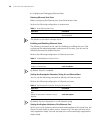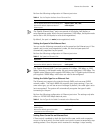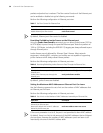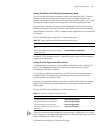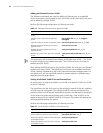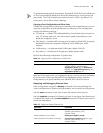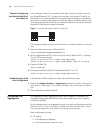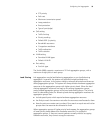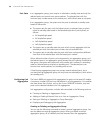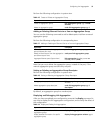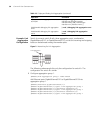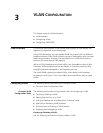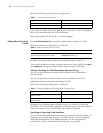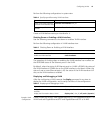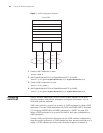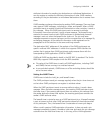36 CHAPTER 2: PORT CONFIGURATION
Port State In an aggregation group, ports may be in selected or standby state and only the
selected ports can transmit user service packets. The selected port with the
minimum port number serves as the master port, while others serve as sub-ports.
In an aggregation group, the system sets the ports to selected or standby state
based on these rules:
■ The system sets the port with the highest priority to selected state, and sets
others to standby state based on the descending order of priority levels, as
follows:
■ full duplex/high speed
■ full duplex/low-speed
■ half duplex/high speed
■ half duplex/low speed
■ The system sets to standby state the ports which cannot aggregate with the
selected port with the lowest port number, due to hardware limits.
■ The system sets to standby state the ports with basic configurations different
from that of the selected port with the lowest port number.
Only a defined number of ports can be supported in an aggregation group, so if
the selected ports in an aggregation group exceed the port quantity threshold for
that group, the system sets some ports with smaller port numbers (in ascending
order) as selected ports and others as standby ports. The selected ports can
transmit user service packets, but standby ports cannot.
A load sharing aggregation group may contain several selected ports, but a
non-load sharing aggregation group can only have one selected port, while others
are standby ports.
Configuring Link
Aggregation
The Switch 8800 only supports link aggregation for ports on the same I/O module.
A maximum number of 8 ports can be selected in a link aggregation. For modules
that have fewer than 8 ports, such as the 2-port 10GBASE-X module, only two
ports can be selected members of a link aggregation.
Link aggregation configuration includes tasks described in the following sections:
■ Creating or Deleting an Aggregation Group
■ Adding or Deleting Ethernet Ports to or from an Aggregation Group
■ Setting or Deleting an Aggregation Group Descriptor
■ Displaying and Debugging Link Aggregation
Creating or Deleting an Aggregation Group
You can use the following command to create a manual aggregation group. You
can also delete an existing aggregation group. When you delete a manual
aggregation group, all its member ports are removed from the aggregation.



